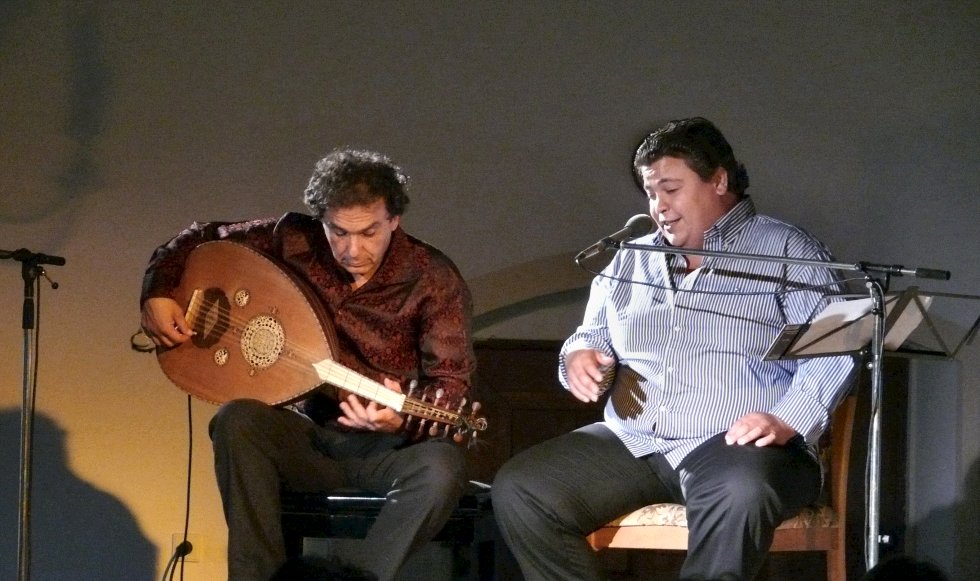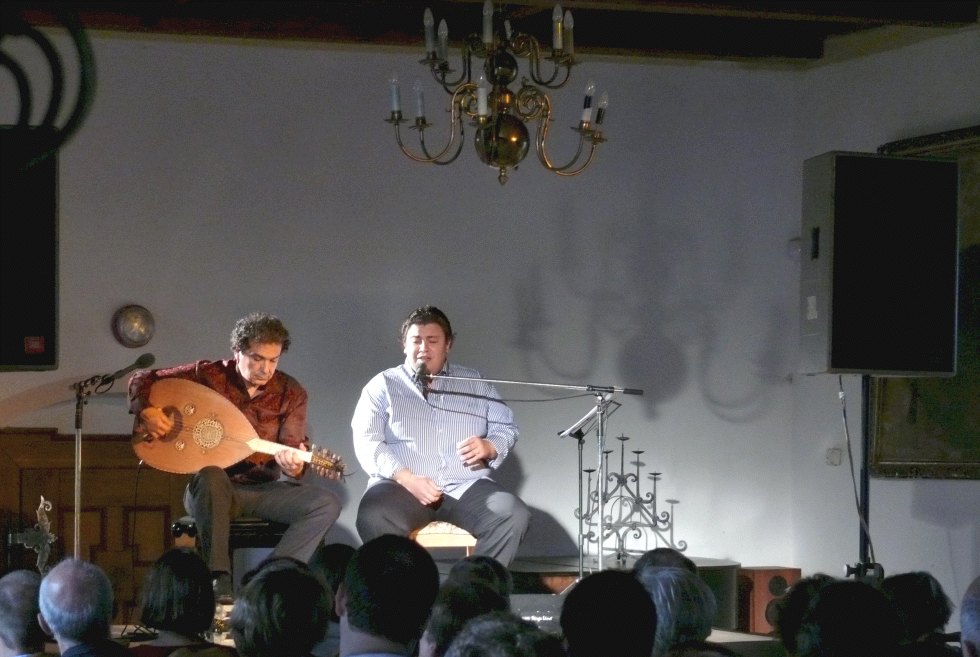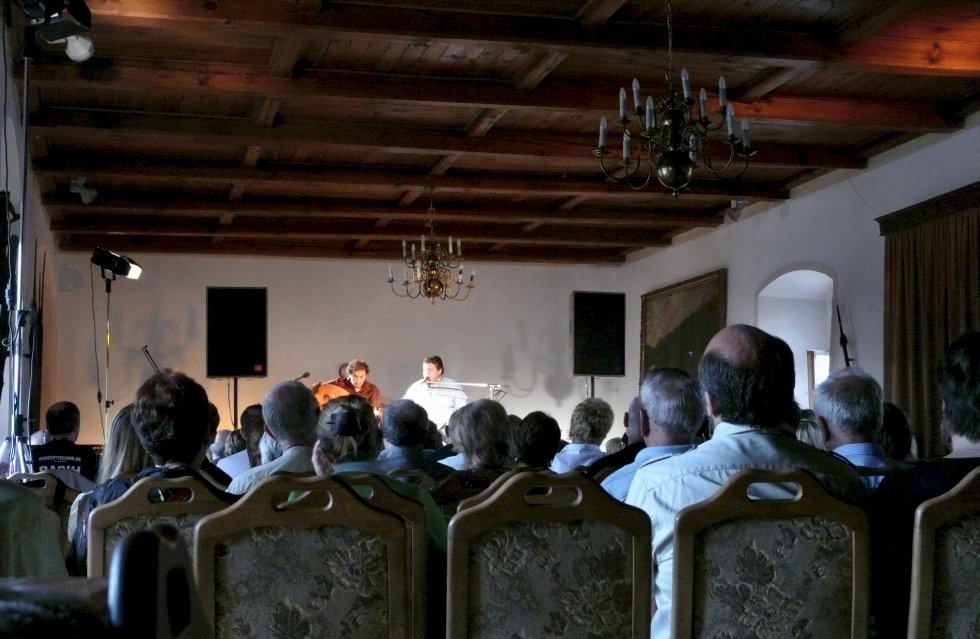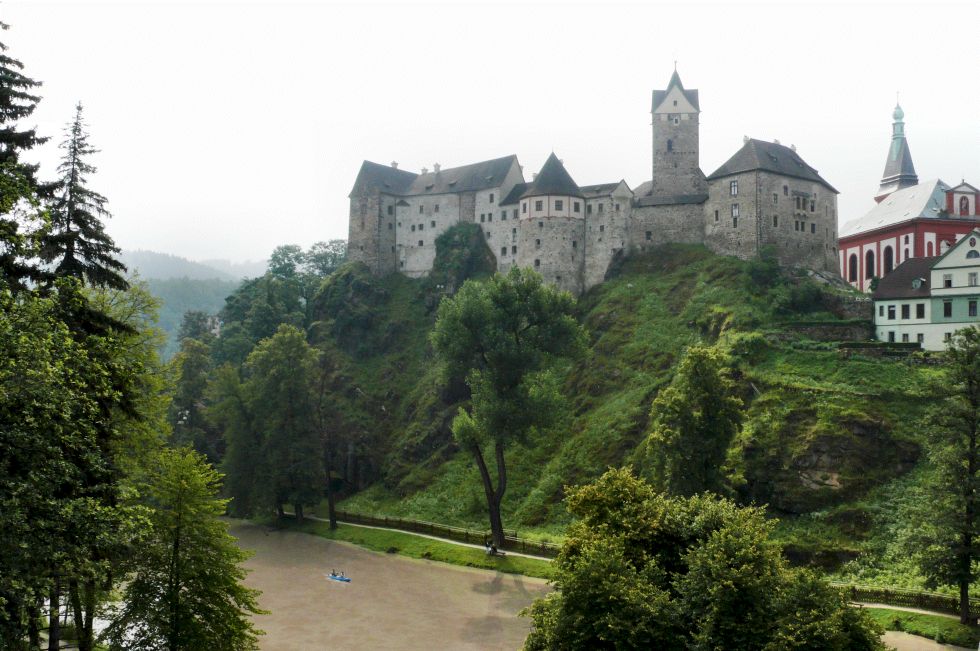
Rabih Abou Khalil and Ricardo Ribeiro: Em Portugues
Composition: Rabih Abou-Khalil
Music: Rabih Abou-Khalil (oud) and Ricardo Ribeiro (voice)
Texts: M. Raínho, T.T. da Silva, J.L. Gordo, R. Manuel, S. Tavares, A. Rocha
Castle Loket (Czech Republic), July 2009
Rabih Abou-Khalil is a musician of Lebanese origin renowned for his fusion of Arabic music with jazz. Ricardo Ribeiro is a fado sanger. We therefore expected a merge between Arabic music and fado, but I found no fado. Appearently Abou-Khalil composed Arabic-style melodies to Portugiese poetry and Ricardo Ribeiro brilliantly interpreted them. The emphasis on rhythm, parallel coutours in voice and oud, complex melodies and the lack of harmony are typical of Abou-Khalil's style and Arabic music in general but they barely occur in fado. To me, the sole connection to fado was a gloomy mood of the songs.
Ricardo Ribeiro was the star of the night. Abou-Khalil's oud playing was brilliant as ever, but he restrained from long solos and left the room for expression to Ribeiro. The sanger was just overwhelming. He effortlessly drew complicated melodies with quarter-tone intervals. Unisono passages with oud revealed his accuracy. Ribeiro's voice was strong in high pitch (he had to pull his head away from the microphone for loud passages) and warm in low pitch, varying from tender to persuading.

Rabih Abou-Khalil and "world music"
Rabih Abou-Khalil plays oud (an Arabic counterpart of a guitar). In his band he assembles musicians of different stylistic backgrounds. Because they use instruments perceived as exotical and/or rarely encountered playing together, his work is often referred to as "world music". This is political phrase rather than an art category and calling Abou-Khalil's work "world music" pays him a bad service, as the term suggests blending styles and ethnic traditions into an amalgam without culture identity. This definitely does not hold true for Abou-Khalil's music. He uses sounds colors merely as a tool and inspiration to consistently develop his own style, which can be labeled as Arabic avant-garde/jazz
fusion. In 2006 we attended a concert of his band in Semperoper. Rabih Abou-Khalil teamed with jazz saxophonist and sanger from Sardinia Gavino Murgia, French jazzman playing tuba Michel Godard, Italian accordeonist Luciano Bondini and American drummer Jarrod Cagwin. The musicians had both a solid classical backround (Abou-Khalil himself studied classical flute with Prof. Walther Theurer in Munich) and substantial records in jazz. And yet, all Abou-Khalil's compositions played on that evening were of his typical, Middle-East bound, immediately recognizable style, rather than being attempts to create "world music" that "crosses geographic and musical boundaries".
Back to Loket, let's look at more photos:


Finally this is a view of castle Loket from outside:

Photos and text: Petr Karlovsky